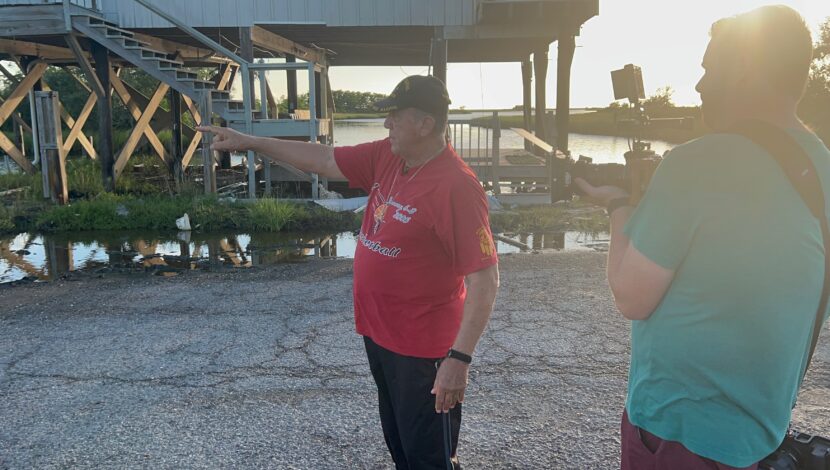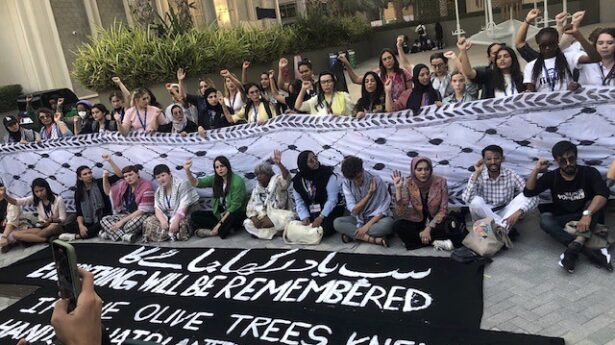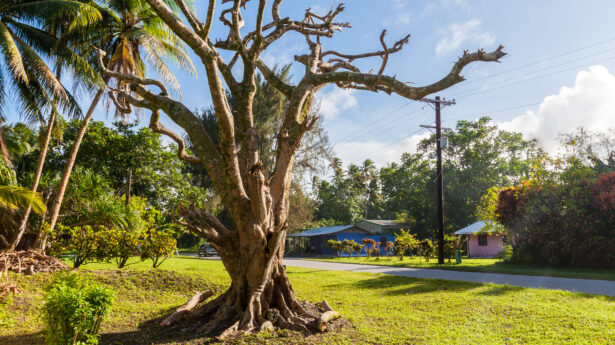The Unitarian Universalist Service Committee advances human rights through grassroots collaborations.
Tribe-Led Relocation Thwarted

By UUSC Staff on April 19, 2024
Isle de Jean Charles is a small, rapidly-eroding island off the coast of southern Louisiana. It is the ancestral home of the Jean Charles Choctaw Nation (formerly known as the Isle de Jean Charles Band of Biloxi-Chitimacha-Choctaw community).
Occupying this land for hundreds of years, members of this Indigenous community have prospered for generations. But due to the startling impacts of climate change—coupled with a long legacy of extractive development—the Isle itself has shrunk by 98%. The Island has slowly sunk, along with most of its habitable land. Oil and gas mining and the thousands of miles of canals dredged through the wetlands enabling this extraction—dating back to the early 1900s—have decimated the biodiversity of the region, killing off species of plants and animals and making it difficult to farm, fish, and shrimp.
As more members of the Tribe left their ancestral home due to the rapidly changing landscape, severe storm damage and flooding, and disinvestment from the state and federal government, leaders of the Jean Charles Choctaw Nation did their best to preserve culture, traditions, and an overall sense of familial ties so as not to lose the distinct and rich heritage that has been built over many years. After Isle de Jean Charles was excluded from critical flood protection systems, the Tribe made the difficult decision to relocate.
With the Tribe on the verge of a diasporic disaster, they saw hope with a 2016 opportunity to receive federal funds from the U.S. Department of Housing and Urban Development (HUD) through its Natural Disaster Resilience Competition. Because the Jean Charles Choctaw Nation is not officially recognized by the federal government, they could not apply for these funds directly and instead had to apply in partnership with the state. Louisiana’s application to HUD was successful, and the state was awarded $48.3 million for the Tribe-led relocation of the Jean Charles Choctaw Nation.
However, relocation efforts after Louisiana received the grant have been fraught with problems; members of the Tribe feel like they have been ignored and swept aside when trying to realize their vision for a Tribe-led relocation to a new life place in which they can continue their culture and traditions, while also continuing to steward Isle de Jean Charles. Moreover, the new homes built with the relocation funds are rife with construction problems and threaten to leave Tribal members economically vulnerable.
Moreover, with Tribal members now largely gone from the Island, the State has begun investing in Island infrastructure and private developers appear to be turning it into a “sportsman’s paradise” for hunting, fishing, and swimming. This development contradicts the Tribe’s vision for their continuing stewardship of the remaining land on the Island and its cultural resources.
The Tribe has a clear vision of resilience that they are working to achieve despite the severe challenges they have faced.
With the support of UUSC peer EarthRights International, the Tribe has filed a complaint with HUD against Louisiana’s Office of Community Development (OCD), alleging that the OCD is committing an act of racial discrimination by ignoring the Tribe’s resettlement plans and instead using federal funds to advance its own state-based agenda for the Island. This is a clear violation of Title VI of the Civil Rights Act of 1964, which prohibits discrimination based on race, color, and national origin for any program that uses federal dollars.
The Tribe is working to discern a path forward, and we will keep you updated as this work progresses.

